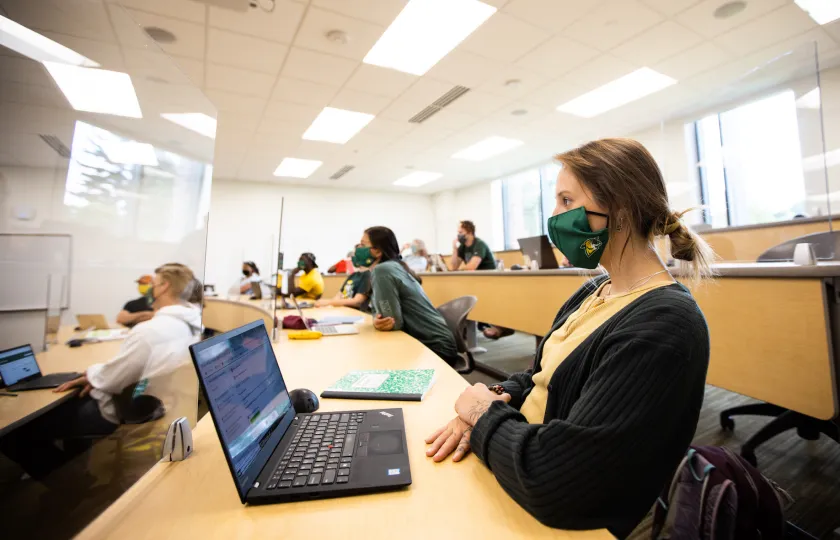To increase inclusivity, Northern Michigan University introduced a new tool for its existing EduCat learning management system this past semester. More than 600 courses used Ally software to automatically check for accessibility issues and generate alternative formats for common course content, and students downloaded more than 5,000 related materials. Ally increases usability for all students, particularly those with learning disabilities such as visual impairments and dyslexia. It also gives faculty feedback and training on how to improve accessibility.
“We had been working toward universal design for a while, but the pandemic pushed it to the forefront, with more classes offered online or through modified on-campus delivery,” said Disability Services Coordinator Harger Boal. “It used to be that a student with a disclosed disability who qualified for our services would come to our office to report class material as unreadable, and then we had to involve the library to work out a solution. Ally doesn't require others to intervene. It fixes everything up front. And it's available to everyone.”
Class rosters are populated with diverse students who have unique learning abilities, needs and devices. It is beneficial to provide content in a variety of ways to make learning more inclusive. Course resources posted in EduCat that feature the Ally “A” icon—Word documents, PowerPoints and PDFs, for example—are available for download in about a half-dozen alternative formats.
“The formats range electronic braille and BeeLine readers, which change color slowly as students go across the words and from line to line, to audio files of text, which can be helpful for international students or someone whose second language is English,” said Senior Instructional Technologist Tom Gillespie. “It's also possible to tag PDFs so screen readers can read headings and jump from section to section rather than scanning a full document from top to bottom.”
Gillespie said faculty members can monitor gauges for resources provided in alternative formats to ensure that they function to their full potential.
“It helps them determine how accessible their course content is and how to improve that,” he said. “If something's missing, like perhaps they don't have headings identified in a document, or if they need to convert a PDF image to text for conversion, they can click on a side tool bar that walks them through the fix,” he said. “After they download the resource, make the necessary change and upload it again, the gauge automatically regenerates to show the improvement. It brings attention to accessibility issues they didn't know they had.”
“Ally gives Northern a birds-eye view of inclusive learning,” Boal said. “It looks at individual courses, but it can also analyze accessibility at the departmental and university levels.”
While the new tool helps to make content more inclusive, it is not a “magic bullet” that instantly makes courses completely accessible or follows all principles of Universal Design for Learning (UDL), Boal said.
After a pilot program in the fall, NMU fully implemented Ally in January and offered workshops for faculty. Northern will participate in Global Fix Your Content Day on May 20. Schools can opt in to a 24-hour competition in which the school that uses Ally to make the most accessibility fixes, weighted by enrollment, wins. In addition to the global activity, NMU will simultaneously mark the day with an on-campus event.
Find more information on Ally at the Center for Teaching and Learning's dedicated website.
Gillespie can be reached at tgillesp@nmu.edu. Boal's email is hboal@nmu.edu.

